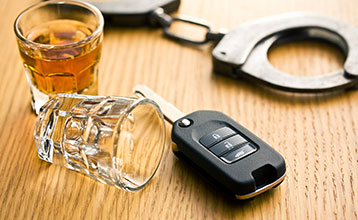Breaking the speed limit is one of the most common traffic offences in Singapore. Whether you speed by accident or on purpose, knowledge of the law around speeding is something everyone should be familiar with. Not only might it discourage you from driving dangerously, but you could also save money and keep a clean licence.
Whether you intend to speed or not, you have committed the offence if you are caught driving at excessive speeds. This is because it’s known as an offence of ‘strict liability. So police can exercise some discretion and only charge for speeding rather than a more serious offence, like dangerous driving.
Speeding law is contained in the Singapore Road Traffic Act. Section 63 makes it a crime to drive a motorised vehicle of any type above the speed limit for that road. The specific limits are discussed below, and they depend on what type of road it is and where it is located. Speed limits are usually anywhere from 30 to 70 kilometres per hour.
You risk getting demerit points on your licence, a fine, and a court appearance if you are caught speeding. In addition, licences can be suspended or revoked if it was a particularly bad offence or a repeat offence.
What happens if I’m fined for speeding?
Speeding offences don’t mean a criminal record (they’re not registered under the Registration of Criminals Act). Still, serious motor offences like causing death by dangerous driving will appear on your criminal record until 5 years of crime-free behaviour has passed.
Demerit points can be cleared by 12 months of offence-free driving.
You don’t have to inform your employer about a speeding offence on a job application. But if you were convicted of a serious offence in court, you must declare that to them.
Accumulating points or losing your licence can have serious and wide-ranging consequences on your personal and professional lives, as they are serious offences.
How fast can I drive on Singapore roads?
Schedules 1 to 6 of the Road Traffic (Restriction of Speeds on Roads) Notification set out speed limits for specific roads in Singapore.
Some typical examples:
- 80-90 km/h in tunnels and on expressways
- 90 km/h on sections of the Ayer Rajah Expressway
- 60 km/h on sections of the Admiralty Road
- 30 km/h on sections of the West Coast Highway.
- School zones: 40 km/h at certain times, like when school is open (signified by flashing sign)
- Silver zones: these are where elderly people may be crossing roads, and the limit is 30-40 km/h
- No specified speed sign: the limit is 50 km/h
Speed restrictions by vehicle type
Heavier vehicles that speed are fined differently to lighter vehicles. The Land Transport Authority impose speed limits on the following vehicles:
- Tunnels: 50-80 km/h for cars/motorcycles; 50-70 km/h for light commercial vehicles; and 50-60 km/h for buses
- Expressways: 70-90 km/h for cars/motorcycles; 60-70 km/h for light commercial vehicles; and 60 km/h for buses.
- Speed limits by vehicle weight: 50 km/h on normal roads for vehicles weighing up to 3.5 tonnes and carrying 15 passengers.
Penalties for Speeding
The main penalties in Singapore for speeding are:
- Composition fines
- Demerit points
- Prosecution in court
- Suspension or revocation of driving licence
Composition fines
In essence, a composition fine is where you pay money to avoid going to court and being prosecuted for your speeding offence. The amount you’ll have to pay depends on your vehicles size, weight and speed. For example, composition fines are used in minor traffic offences, where you don’t break the speed limit by more than 40 km/h. Your notice will clearly state the ‘offer of composition’. If you don’t pay the fine, you’ll be prosecuted by the court. The longer you wait to pay, the more the fine increases, so it’s a good idea to pay early.
For light vehicles, expect a composition fine ranging from $150 to $300. However, if you were driving a heavy vehicle, your fine would be in the range of $200 to $400, depending on how much you broke the limit by.
Payment can be made at any AXS machine.
Demerit points
The “Driver Improvement Points System” (DIPS) can punish drivers who speed by giving them demerit points. The number of points they get depends on the seriousness of the offence. A notice is sent to the driver showing the number of points they’ve been given and their demerit status.
Note that you can be fined or prosecuted in addition to receiving demerit points, depending on how serious the offence is.
The demerit system currently operates like this:
Demerit points Speed limit exceeded by:
| Demerit Points | Speed limit exceeded by |
|---|---|
| 4 | Up to 20 km/h |
| 6 | 21-30 km/h |
| 8 | 31-40 km/h |
| 12 | 41-50 km/h |
| 18 | 51-60 km/h |
| 24 | More than 60 km/h |
Can demerit points be removed?
Yes, demerit points are not permanent. If a driver doesn’t get any further points 12 months after their offence, the points can be removed.
Another way of removing them is for the driver to attend a Safe Driving Course (SDC), which removes 4 points from their record.
Not everyone can attend an SDC. Only the following may use this option:
- A driver who has a valid licence
- A driver with no existing suspensions, who has between 8 and 23 points
- A driver who does have an existing suspension record, who has between 4 and 11 points
Those who may not attend an SDC include:
- disqualified drivers
- drivers who are on probation or about to be suspended
- drivers who have attended an SDC in the past year
In any ten-year period, a driver may only attend 2 Safe Awareness Courses.
Prosecution in court
Anyone who commits the serious offence of driving more than 40 km/h over the speed limit will have to appear in court to be prosecuted. However, they won’t be offered the option of a composition fine.
Section 67(A) of the Road Traffic Act (RTA) gives the court the power to punish repeat offenders by issuing punishments up to three times the amount of the first offence. This goes up to a maximum of ten years in prison.
Suspension or revocation of driving licence
If the police believe a driver poses a danger to the public or isn’t competent to drive, they can suspend their licence under section 45 of the RTA. The demerit points system and the driver’s records are designed to help police determine whether they should have their licence suspended or revoked.
New / Non-probationary drivers
A driver who hasn’t yet held their licence for a year can have it revoked if they are awarded 13 or more demerit points in their first year of driving. After that, their licence will be invalidated, and they will have to reapply for it and retake both theory and practical tests to get a new licence.
Non-probationary drivers
Those drivers with no record of suspension but who have accrued 24 or more points in 24 months can be suspended from driving for 12 weeks. A driver who has a previous record of suspension and gets 12 or more points within a year is liable for another suspension.
How long they are suspended depends on their record of suspension:
- 24 weeks for a 2nd suspension
- 1 year for a 3rd suspension
- 2 years for a 4th suspension
- 4 years for a 5th or subsequent suspension
The police will take the driver’s licence card for the duration of the suspension. The card is returned to the driver in the case of the first 2 suspensions, but it is not returned for the 3rd or subsequent suspensions. All tests must be taken again to get it back.
Can I reduce the length of my suspension?
The option of a DIPS retraining course is given to drivers on their 1st or 2nd suspensions, which will reduce the suspension when completed.
There is a 4-week balance period of suspension after retraining for those on a 1st-time suspension. There is a 12-week balance period after retraining for those on a 2nd suspension. Thus, the suspension period can be reduced by up to 8 weeks for a 1st suspension or 12 weeks for a 2nd suspension, depending on when the retraining course is completed.
Fixed, clear & transparent fees
Criminal Law Advice
From $1,590
Plead Guilty Case


